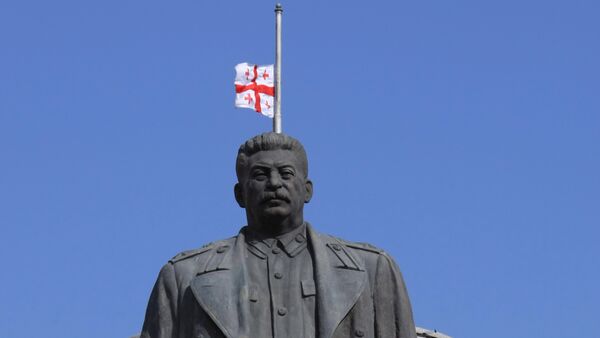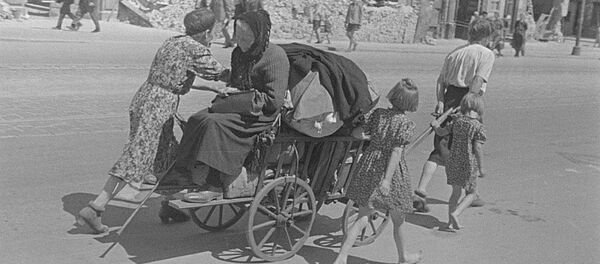Alexander Lursmanishvili, the head of the local Communists, vowed that by the time they're through, "there will be even more signatures," adding that "on Victory Day, Stalin must be with us!"
The communist politician explained that "not just the people of Gori, but the absolute majority of Georgians are in favor of the monument's restoration." Lursmanishvili added that "it's not even a matter of nostalgia for the leader, but of respect for our history –to the memory of our famous fellow countryman."
After collecting the signatures, Gori's communists will send them to city authorities, who are obliged to react to the citizen initiative. In addition to the signatures, the initiative's organizers are also planning to carry out several peaceful protests in Gori and in the capital of Tbilisi in front of the Ministry of Culture. Moreover, organizers have already hired a lawyer, and are ready to launch a court appeal should city authorities refuse to respond to the campaign.
The seven meter-tall Statue of Stalin, one of the few to survive the de-Stalinization campaigns of the late 1950s and 1960s in the Soviet Union, stood outside the city's Town Hall until 2010, when it was removed on the order of then-Georgian president Mikhail Saakashvili, who declared it was a "symbol of totalitarianism," and of "an empire which invaded Georgia in 2008." The Georgian government had planned to place a monument to the victims of the 2008 war instead, but never got around to it. Georgian member of paliament Givi Targamadze, an ally of Saakashvili, revealed after the war that the statue had so enraged the former president that he even asked Russia to blow it up during negotiations in the war of 2008.
Prior to its disassembly, Gori residents had gathered before the statute at the town's square on December 21 (Stalin's birthday) and March 5 (the anniversary of his death) to honor the leader. Residents recalled that the statue was removed under the cover of night in 2010 in order to avoid mass protests. The statue is presently located at an abandoned industrial zone seven kilometers outside Gori.
700,000 sons of Georgia fought in the Red Army during the Second World War; 300,000 of them were killed in battle, the highest casualty rate among all the republics of the Soviet Union. Despite the absence of formal diplomatic relations following the 2008 war, Russia has invited Georgia's leadership to Moscow to celebrate the 70th anniversary of the victory in the Second World War this May. Georgia's leaders have not yet responded to the invitation.





